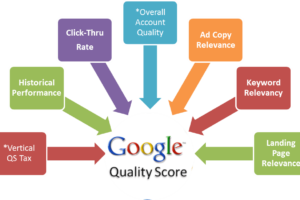In the ever-evolving landscape of digital technology, the way we seek and retrieve information is undergoing a profound transformation. Traditionally, Google has been the undisputed champion of search engines, serving as the go-to source for answers to our myriad questions.
However, in recent years, a new contender has emerged on the scene, challenging the search giant’s supremacy: ChatGPT.
Read More: Mistakes While Working on Startup
The Rise of AI-Powered Conversational Assistants
ChatGPT is an artificial intelligence (AI) model developed by OpenAI, designed to engage in natural language conversations. Unlike traditional search engines, which require users to input specific keywords or phrases to retrieve information, ChatGPT operates on the principle of conversational AI.
This means that users can interact with ChatGPT like how they would converse with another human being, asking questions, seeking advice, and engaging in dialogue.
Must Read: Are you wasting your time on AI for creating content?
The Appeal of ChatGPT
So, why are more and more people choosing ChatGPT over Google? There are several factors at play:
- Natural Language Processing (NLP) Capabilities: ChatGPT’s advanced NLP capabilities allow it to understand and interpret natural language queries more effectively than traditional search engines. This means users can conversationally ask questions, without needing to rely on specific keywords or phrases.
- Personalized Responses: ChatGPT can provide personalized responses based on the context of the conversation, user preferences, and past interactions. This level of personalization enhances the user experience, making it feel more like a genuine conversation rather than a one-size-fits-all search result.
- Continuous Learning: As an AI model, ChatGPT is constantly learning and improving based on the interactions it has with users. This means that over time, ChatGPT becomes increasingly adept at understanding user queries and providing accurate, relevant answers.
- Privacy Concerns: With growing concerns about data privacy and surveillance, some users are turning to ChatGPT as a more privacy-friendly alternative to traditional search engines like Google. Since ChatGPT operates as a conversational AI model, it doesn’t track or store user data in the same way that search engines do.
- Conversational Experience: Interacting with ChatGPT can feel more natural and intuitive compared to typing keywords into a search bar. Users can ask follow-up questions, clarify their queries, and engage in dialogue, creating a more immersive and engaging experience.
The Future of Information Retrieval
As AI technology continues to advance, we can expect to see even greater integration of conversational assistants like ChatGPT into our daily lives.
From helping users find information more efficiently to providing personalized recommendations and assistance, AI-powered conversational assistants have the potential to revolutionize the way we interact with technology.
While Google will likely remain a dominant force in the world of search for the foreseeable future, the rise of ChatGPT and similar AI-driven conversational assistants signals a shift towards more natural, intuitive, and personalized forms of information retrieval.
As users increasingly prioritize convenience, personalization, and privacy in their online experiences, ChatGPT stands poised to play an increasingly prominent role in shaping the future of digital information access.
Wrapping-Up
In conclusion, the choice between ChatGPT and Google ultimately comes down to personal preference and the specific needs of the user.
While Google may still hold sway as the default search engine for many, the emergence of ChatGPT represents an exciting development in the ongoing evolution of AI technology. Whether you’re seeking quick answers to simple questions or engaging in more complex conversations, ChatGPT offers a compelling alternative that’s worth exploring.











